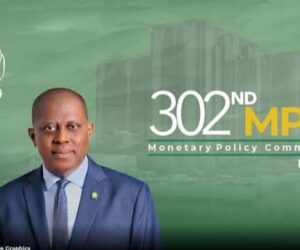
For Forex traders, finding a suitable Forex trading partner or broker can mean the difference between making profits out of trading or losing time, effort, or resources. Apart from an efficient Forex trading system or expert Forex trading know-how, your Forex trading partner affects your trading bottom line, as costs, spreads, or Forex trading services offered by a Forex trading partner influence your trading profits or losses.
Forex Brokerage Fees Explained
All Forex brokers will charge traders in some form or manner, which may be in terms of commissions, spreads, or a mix of both. Some Forex brokers charge commissions, which require a small amount of payment for trading. On the other hand, others might just rely on the spread, which refers to the price at which they will buy or sell a security.
For instance, if the value of EUR/USD is quoted at 1.1050/1.1052, the 2-pip difference represents the spread — and a narrower spread generally indicates lower trading costs. It should, however, be noted that spreads differ from time to time depending on various factors such as account type, volatility, and liquidity.
On the other hand, traders must also look out for hidden charges such as overnight swap rates, inactivity fees, or withdrawal fees. For instance, a broker with a low spread charge may also charge service fees in other areas.
Importance of Spreads in Profits
Spread refers to one of the most important factors for analysis that you need to consider while choosing trading brokers. Basically, a small spread will mean that you won’t need to shell out more for opening or closing a trade. Brokers that provide a variable spread will adjust their pricing depending on market conditions, which may result in a wider spread during high volatile conditions or news-driven market changes.
In cases where traders engage in activities such as scalping or day trading, with a high opening and closing rate of positions, any variation in spreads may translate to considerable savings over time. It, therefore, forms a wise decision to carry out a comparison between different brokers in terms of typical spreads for major currency pairs, for instance, EUR/USD or GBP/USD.
Assessing Broker Services And Support
Aside from expenses, service quality offered by a broker may influence overall trading experience as a whole. Truly reputable brokers are more than just a trading site, as they extend a range of tools that will improve traders’ competence and safety of investment.
Also, look for brokers that offer sophisticated trading platforms such as MetaTrader 4, MetaTrader 5, or custom apps with real-time analysis capabilities. Another important aspect to look for in a quality broker would be education, which it may provide to its clients.
Customer support also matters—responsive, multilingual assistance available around the clock is a hallmark of a professional broker. In addition, check for regulatory licenses from authorities such as the FCA (UK), ASIC (Australia), or CySEC (Cyprus), which ensure transparency and safeguard client funds.
Concluding Remarks
Comparing Forex brokers requires more than just a quest for cheap transactions. It requires finding a balance between cost, transparency, and trust. Clients should look for Forex brokers that offer low costs, sound regulation, rapid execution speed, as well as impeccable customer service. In the long run, integrity, technology, and a support system offered by a broker may mean as much as a spread chart. This helps you make sure that with every trading decision, you rely not only on trust but also on efficiency and relevant tools for success in Forex trading.
#FeaturedPost








